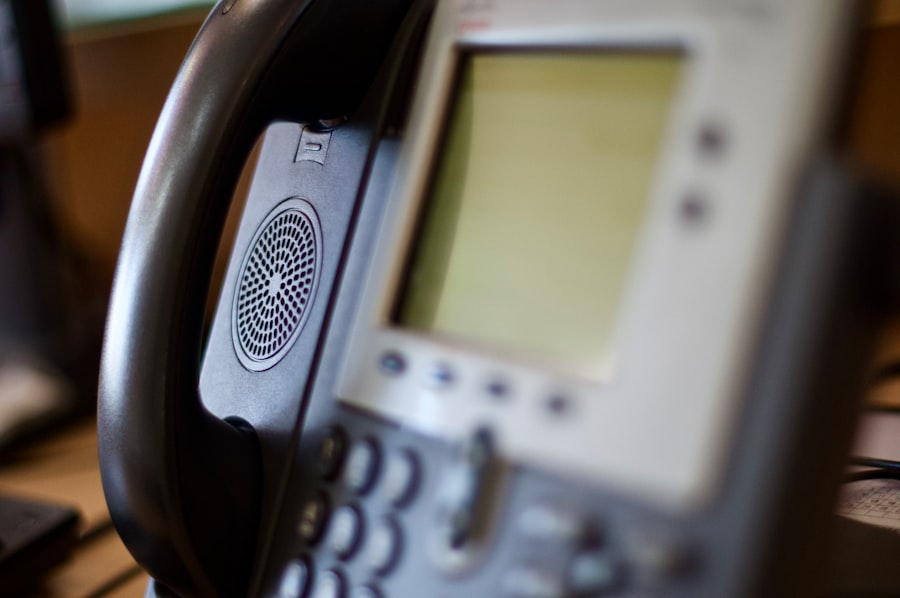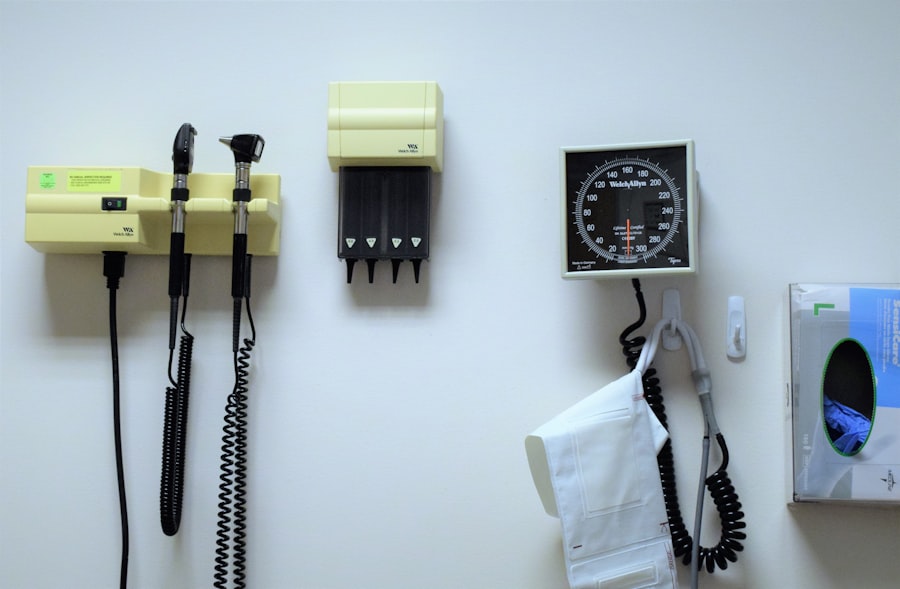In the rapidly evolving landscape of healthcare, the role of communication agencies has become increasingly vital. These agencies serve as the bridge between healthcare providers, patients, and the broader community, ensuring that critical information is conveyed effectively and accurately. Empowering these agencies is essential not only for enhancing their operational capabilities but also for improving overall health outcomes.
When healthcare communication agencies are equipped with the right tools, resources, and support, they can craft messages that resonate with diverse audiences, ultimately fostering better understanding and engagement in health-related matters. Moreover, empowered healthcare communication agencies can play a pivotal role in addressing public health crises. For instance, during the COVID-19 pandemic, effective communication was crucial in disseminating information about safety protocols, vaccination campaigns, and treatment options.
Agencies that were well-resourced and supported were able to respond swiftly to misinformation and adapt their strategies to meet the changing needs of the public. This adaptability not only enhances the credibility of healthcare organizations but also builds trust within communities, which is essential for promoting health initiatives and encouraging preventive care.
Key Takeaways
- Empowering healthcare communication agencies enhances patient care and industry effectiveness.
- Strategic approaches include leveraging technology and continuous training for agency teams.
- Building strong collaborations between agencies and healthcare providers is crucial.
- Overcoming challenges requires adaptive solutions and proactive problem-solving.
- The future of healthcare communication agencies lies in innovation and integrated communication strategies.
Strategies for Empowering Healthcare Communication Agencies
To empower healthcare communication agencies effectively, a multifaceted approach is necessary. One of the primary strategies involves investing in robust training programs that enhance the skills of communication professionals. These programs should focus on developing competencies in areas such as crisis communication, digital marketing, and audience analysis.
By equipping staff with these essential skills, agencies can improve their ability to craft targeted messages that resonate with specific demographics, thereby increasing the impact of their communications. Another critical strategy is fostering a culture of collaboration within and between agencies. This can be achieved by creating platforms for knowledge sharing and best practices among communication professionals.
Regular workshops, webinars, and networking events can facilitate this exchange of ideas and experiences. Additionally, collaboration with healthcare providers, researchers, and community organizations can lead to more comprehensive communication strategies that address the needs of various stakeholders. By working together, agencies can leverage each other’s strengths and resources to create more effective campaigns that ultimately benefit patient care.
Leveraging Technology for Empowering Healthcare Communication Agencies

In today’s digital age, technology plays a crucial role in empowering healthcare communication agencies. The integration of advanced tools such as data analytics, social media platforms, and content management systems can significantly enhance the effectiveness of communication efforts. For instance, data analytics can provide insights into audience behavior and preferences, allowing agencies to tailor their messages more precisely.
By understanding what resonates with different segments of the population, agencies can create targeted campaigns that drive engagement and improve health literacy. Social media platforms also offer unprecedented opportunities for outreach and engagement. Healthcare communication agencies can utilize these platforms to disseminate information quickly and interactively.
For example, live Q&A sessions on platforms like Facebook or Instagram can help address public concerns in real-time, fostering a sense of community and trust. Furthermore, the use of content management systems enables agencies to streamline their workflows, ensuring that information is updated regularly and accessible to both healthcare professionals and the public. By leveraging these technologies, agencies can enhance their communication strategies and reach wider audiences more effectively.
The Role of Training and Development in Empowering Healthcare Communication Agencies
| Metric | Description | Impact on Healthcare Communication Agencies | Example Data |
|---|---|---|---|
| Employee Skill Improvement | Percentage increase in communication and technical skills after training | Enhances the quality and accuracy of healthcare messaging | 75% skill improvement post-training |
| Training Hours per Employee | Average number of training hours completed by each employee annually | Ensures continuous professional development and up-to-date knowledge | 40 hours/year |
| Employee Engagement Rate | Percentage of employees actively participating in training programs | Higher engagement leads to better retention and application of skills | 85% participation rate |
| Communication Accuracy | Reduction in errors or misinformation in healthcare communications | Improves trust and credibility with healthcare clients and audiences | 30% reduction in errors |
| Client Satisfaction Score | Rating given by healthcare clients on communication effectiveness | Reflects the success of training in meeting client needs | 4.7 out of 5 |
| Time to Competency | Average time taken for new hires to reach full productivity | Shorter time indicates effective onboarding and training processes | 3 months |
| Return on Training Investment (ROTI) | Measure of benefits gained relative to training costs | Demonstrates financial and operational value of training programs | 150% ROTI |
Training and development are cornerstones of empowering healthcare communication agencies. Continuous professional development ensures that communication professionals remain abreast of the latest trends, technologies, and best practices in the field. This ongoing education can take various forms, including formal training sessions, online courses, and mentorship programs.
By investing in the growth of their staff, agencies not only enhance their capabilities but also foster a culture of innovation and adaptability. Moreover, specialized training in areas such as health literacy is essential for empowering communication professionals to convey complex medical information in an understandable manner. For instance, workshops focused on simplifying medical jargon can equip communicators with the skills needed to create materials that are accessible to patients with varying levels of health literacy.
This focus on clarity and comprehension is particularly important in diverse communities where language barriers may exist. By prioritizing training that emphasizes effective communication strategies tailored to different audiences, healthcare communication agencies can significantly improve their outreach efforts.
Building Strong Collaborative Relationships in Empowering Healthcare Communication Agencies
Collaboration is a fundamental aspect of empowering healthcare communication agencies. Building strong relationships with healthcare providers, community organizations, and other stakeholders enhances the effectiveness of communication efforts. These partnerships enable agencies to gain insights into the specific needs and concerns of different populations, allowing for more tailored messaging.
For example, collaborating with local community leaders can help agencies understand cultural nuances that may influence health behaviors and attitudes. Additionally, fostering relationships with media outlets can amplify the reach of health messages. By establishing connections with journalists and editors who cover health topics, communication agencies can ensure that important information is disseminated through trusted channels.
This collaboration not only enhances visibility but also helps combat misinformation by providing accurate and timely updates on health issues. Ultimately, strong collaborative relationships empower healthcare communication agencies to create more impactful campaigns that resonate with their target audiences.
The Impact of Empowering Healthcare Communication Agencies on Patient Care

The empowerment of healthcare communication agencies has a direct impact on patient care outcomes. When these agencies are equipped with the necessary resources and support, they can effectively disseminate vital health information that influences patient behavior and decision-making. For instance, well-crafted public health campaigns can encourage individuals to seek preventive care services such as vaccinations or screenings, ultimately leading to early detection and better management of health conditions.
Furthermore, empowered communication agencies play a crucial role in enhancing patient engagement. By providing clear and accessible information about treatment options, medication adherence, and lifestyle changes, these agencies empower patients to take an active role in their health management. For example, educational materials that explain complex medical procedures in layman’s terms can alleviate anxiety and foster informed decision-making among patients.
This empowerment not only improves patient satisfaction but also contributes to better health outcomes by encouraging adherence to treatment plans.
Overcoming Challenges in Empowering Healthcare Communication Agencies
Despite the numerous benefits associated with empowering healthcare communication agencies, several challenges persist. One significant hurdle is the ever-changing landscape of healthcare regulations and policies. Communication professionals must navigate complex legal frameworks while ensuring compliance with privacy laws such as HIPAA (Health Insurance Portability and Accountability Act).
This complexity can hinder their ability to communicate effectively if they lack adequate training or resources. Additionally, addressing disparities in access to technology poses another challenge for healthcare communication agencies. While digital tools have revolutionized communication strategies, not all populations have equal access to these technologies.
Rural communities or underserved urban areas may face barriers such as limited internet connectivity or lack of digital literacy. To overcome these challenges, agencies must adopt inclusive strategies that consider the diverse needs of their target audiences. This may involve utilizing traditional media channels alongside digital platforms or developing materials in multiple languages to ensure equitable access to information.
The Future of Empowering Healthcare Communication Agencies
Looking ahead, the future of empowering healthcare communication agencies appears promising yet complex. As technology continues to advance at a rapid pace, agencies will need to adapt their strategies accordingly. The rise of artificial intelligence (AI) and machine learning presents opportunities for more personalized communication approaches.
For instance, AI-driven chatbots could provide patients with instant responses to common health inquiries, enhancing accessibility while freeing up human resources for more complex interactions. Moreover, as public health challenges evolve—such as emerging infectious diseases or mental health crises—healthcare communication agencies will need to remain agile in their response strategies. This adaptability will require ongoing investment in training and development to ensure that professionals are equipped with the skills necessary to navigate new challenges effectively.
Additionally, fostering a culture of innovation within these agencies will be crucial for exploring novel approaches to communication that resonate with diverse populations. In conclusion, empowering healthcare communication agencies is essential for enhancing public health outcomes and improving patient care experiences. By investing in training, leveraging technology, building collaborative relationships, and addressing challenges head-on, these agencies can play a transformative role in shaping the future of healthcare communication.



